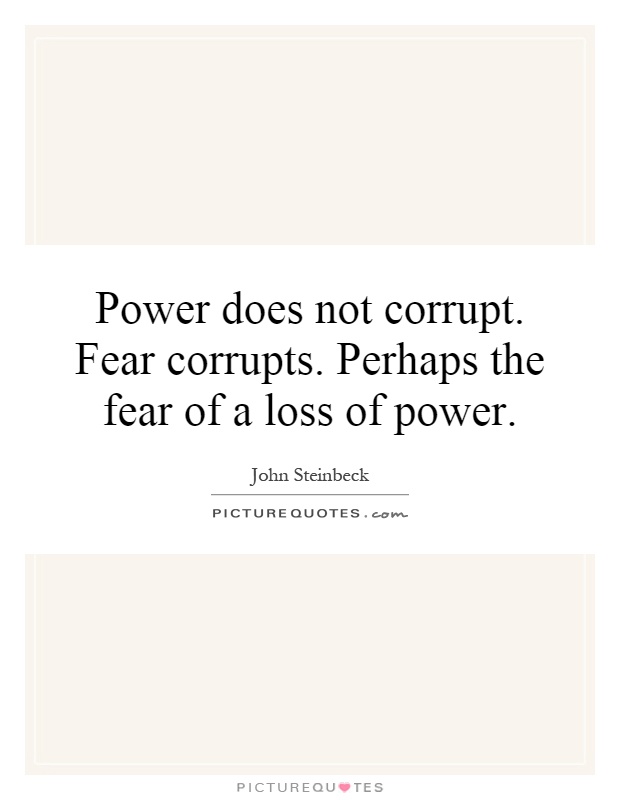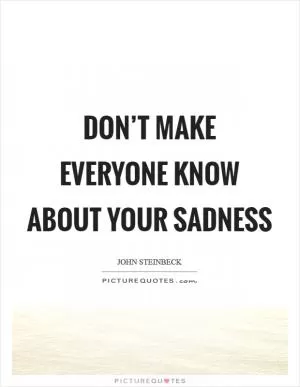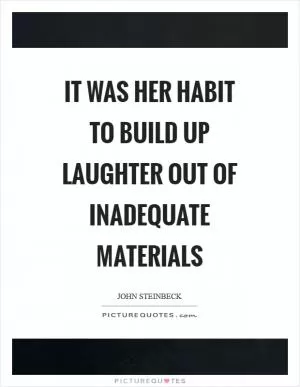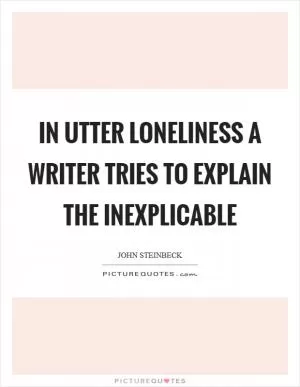Power does not corrupt. Fear corrupts. Perhaps the fear of a loss of power

Power does not corrupt. Fear corrupts. Perhaps the fear of a loss of power
John Steinbeck, the renowned American author, often explored themes of power and corruption in his works. In his novel "The Grapes of Wrath," Steinbeck delves into the impact of fear on individuals and society as a whole. The quote "Power does not corrupt. Fear corrupts. Perhaps the fear of a loss of power" resonates strongly in Steinbeck's writing, as he portrays characters who are driven by their fears and insecurities.In "The Grapes of Wrath," the Joad family faces numerous challenges as they migrate to California in search of a better life during the Great Depression. Throughout their journey, they encounter powerful landowners and corrupt officials who exploit their fear and desperation for their own gain. The fear of losing their land, livelihood, and dignity drives the Joads to make difficult decisions and compromises, ultimately leading to their disillusionment and despair.
Steinbeck suggests that it is not power itself that corrupts individuals, but rather the fear of losing that power. Those in positions of authority often use fear as a tool to maintain control and manipulate others. The fear of being overthrown or marginalized can drive individuals to commit unethical and immoral acts in order to preserve their power and status.












 Friendship Quotes
Friendship Quotes Love Quotes
Love Quotes Life Quotes
Life Quotes Funny Quotes
Funny Quotes Motivational Quotes
Motivational Quotes Inspirational Quotes
Inspirational Quotes